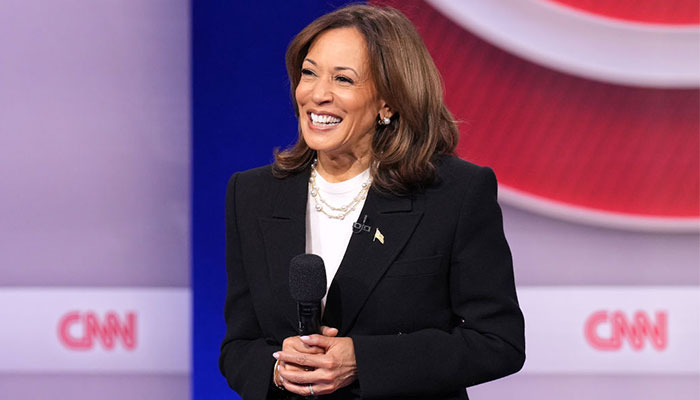Polls show the race for the White House has been agonisingly close for months since Vice-President Kamala Harris became the Democratic presidential nominee following Joe Biden’s disastrous debate performance in June.

Harris has a lead of about two percentage points over Trump in national polling averages, but the electoral college used to elect the president means the votes of most Americans barely matter, says Dr Lloyd Cox, senior lecturer in United States political history at Macquarie University.
In contrast, voters in just seven 'swing' states - usually grouped as the sun belt states of Arizona, Nevada, Georgia and North Carolina, and the rust belt trio of Pennsylvania, Wisconsin and Michigan - have been bombarded with election ads and campaign rallies as Harris and Trump try to eke out a victory.
The FiveThirtyEight website suggests Trump is narrowing Harris’ national lead, while voters in swing states are evenly-divided.
Dr Cox says Harris re-energised her party’s base and activists, quickly bridging the gap Trump had built over Biden.
“A couple of months ago she built a lead, if polls are to be believed. Since then, it’s come back a bit - Harris was ahead, now less so,” he says. “But all seven battleground states seem to be real toss-ups.”
The race for the White House may come down to a few undecided voters in states such as Pennsylvania because of the anti-democratic electoral college used to elect the president, says Cox.
“I think Harris will win the popular national vote, but it’s not at all clear she will win the electoral college,” Dr Cox says.
“I’d probably bet money on Trump winning if the election was tomorrow.”
US presidents are chosen by the electoral college - a group of 538 presidential electors based on the number of politicians each state elects to Congress. If Trump wins the popular vote in Pennsylvania, for example, he will win all 19 of that state’s electoral college votes.
“It’s not necessarily the case that the campaign with the deepest pockets wins.
The origins of the electoral college are contentious, with some scholars arguing the framers of the US Constitution feared democracy and worried voters might be swayed by demagogues; others say it was designed to offer more federal power to less populous, slaveholding states.
Dr Cox says the electoral college is anti-democratic because smaller rural states such as Wyoming that tend to vote Republican have a disproportionate number of votes in the electoral college compared with more populous states that favour Democrats such as California and New York.
Thus, Trump beat Hillary Clinton in 2016 with almost three million fewer votes, and almost won in 2020 even though Joe Biden won seven million more votes.
“If about 100,000 votes in four states had gone the other way, Trump would have won,” Dr Cox says.

The accuracy of polls has been questioned after the last two presidential elections saw pollsters underestimate support for Trump.
Dr Cox says national polls in 2016 correctly forecast Clinton winning more votes, while state-based polls were inaccurate - a problem repeated in 2020.
“State polling is sponsored by media organisations who are financially under the pump,” he says. “Consequently they cut corners with cheap polling that seemed to undercount Trump voters.”
The role of young voters
Is the 2024 election contest as close as the polls say or is Harris’ support overstated? Dr Cox says the opposite could be true if polling organisations have overcompensated in their efforts to count Trump voters or undercount constituencies that favour Harris.
“Young people are less likely to answer polls, but are hugely overrepresented among Democrat voters,” he says.
Another lesson from past presidential campaigns is that money does not guarantee victory despite the billions of dollars candidates raise.
- Fighting back against zombie nouns and gobbledygook: Celebrating plain language
- Please explain: Is cannabis the answer to insomnia?
“It’s not necessarily the case that the campaign with the deepest pockets wins,” Dr Cox says. “In 2016 Hillary Clinton raised more than double Trump, yet Trump won in part because he got free advertising through media coverage.”
Abortion, immigration and the cost-of-living are the three issues that are at the forefront of this year’s presidential contest.
Abortion is likely to widen the gender gap in support for Harris and Trump who appears to be winning some support among African American and Latino men.
However, Dr Cox doubts misogyny will significantly harm support for Harris: “Most people with a traditional view of gender and masculinity are already locked in voters for Trump.”
Dr Lloyd Cox is a senior lecturer in US political history in the Macquarie School of Social Sciences.



